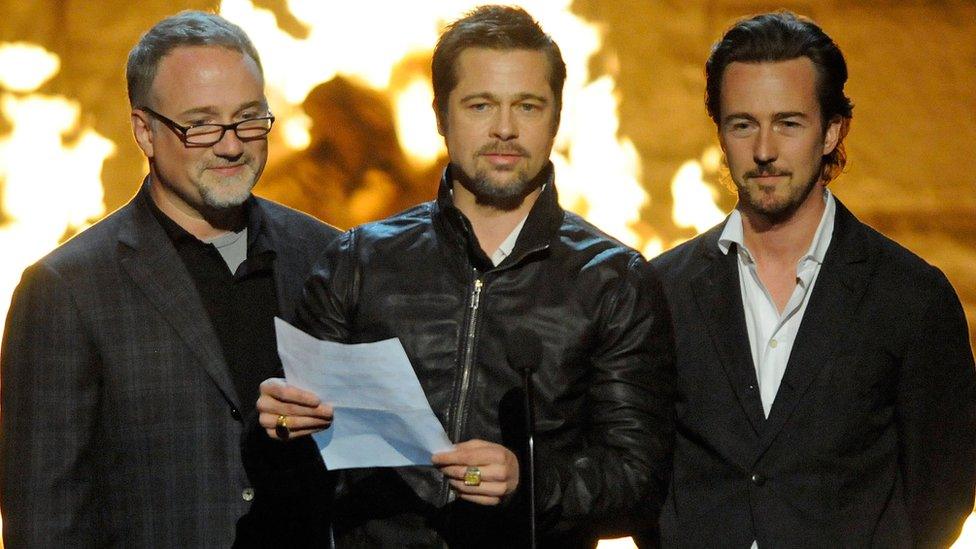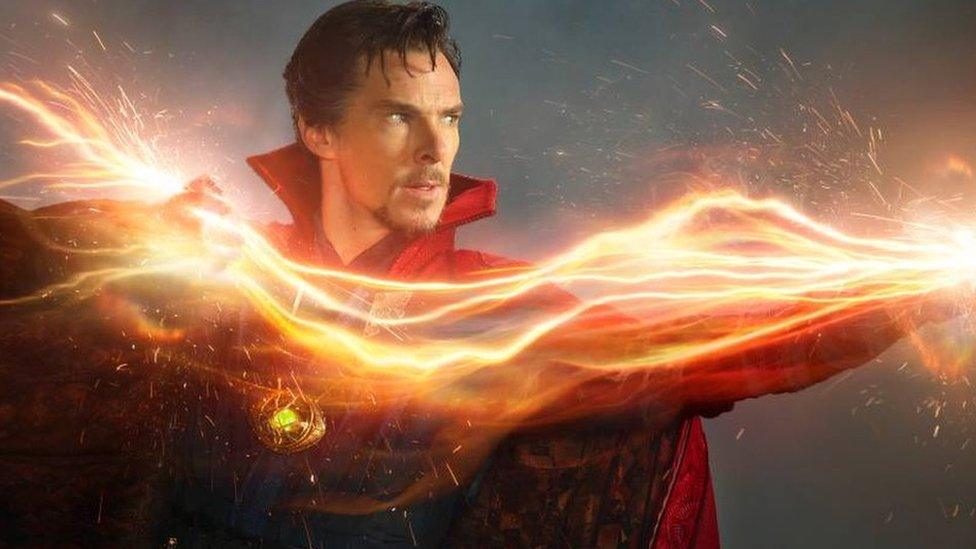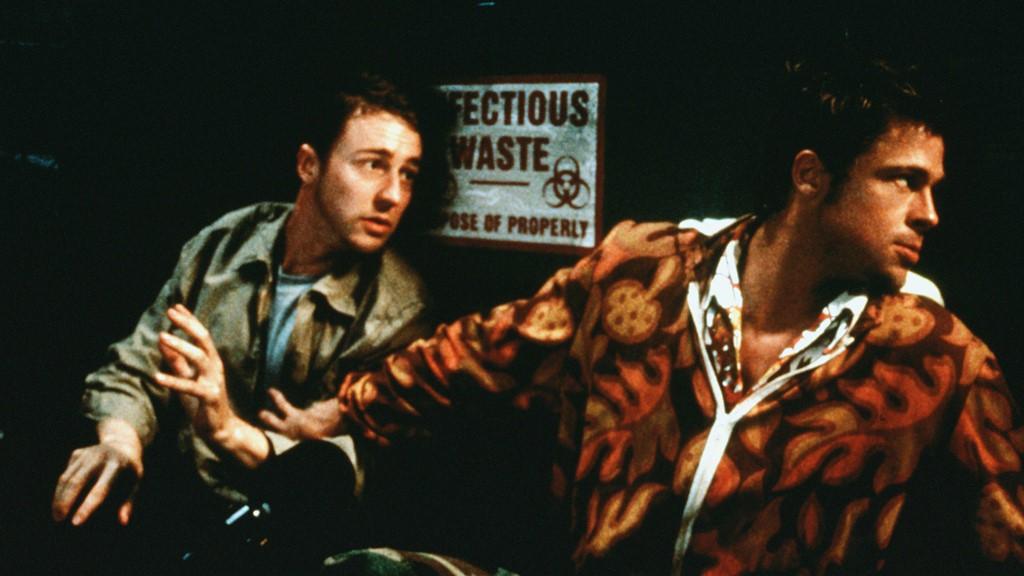China changes Fight Club film ending so the authorities win
- Published

Brad Pitt played the anarchic Tyler Durden in Fight Club
The ending to cult 1999 US film Fight Club has been removed for viewers in China, and replaced by a screen with a message saying the authorities won.
The original ending saw Edward Norton's narrator killing his imaginary alter-ego Tyler Durden, played by Brad Pitt, before bombs destroyed buildings in the climax to a subversive plot to reorder society, dubbed Project Mayhem.
In China, before the explosions, a message now says the police foiled the plot, arrested the criminals and sent Durden to a "lunatic asylum".
The new finale tells viewers: "Through the clue provided by Tyler, the police rapidly figured out the whole plan and arrested all criminals, successfully preventing the bomb from exploding.
"After the trial, Tyler was sent to lunatic asylum receiving psychological treatment. He was discharged from the hospital in 2012."
Director David Fincher's film has recently been added to streaming platform Tencent Video, and Human Rights Watch described, external the changes as "dystopian".
Chuck Palahniuk, who wrote the 1996 novel that Fight Club was adapted from, wrote sarcastically on Twitter, external: "This is SUPER wonderful! Everyone gets a happy ending in China!"

Fight Club director David Fincher pictured with actors Brad Pitt and Edward Norton at a 2009 awards ceremony
The author added on Substack, external: "How amazing. I'd no idea! Justice always wins. Nothing ever exploded. Fini."
Dissident artist Ai Weiwei also posted a link, external to a story about the changes, with the question: "What Would Tyler Durden Say?"
US senator Ted Cruz, a Republican representing Texas, wrote, external: "The second rule of Fight Club is 'we will do and say whatever the Chinese communist censors tell us to do and say.'"
The changes were flagged up on social media by outraged viewers who had previously seen pirated copies of the original.
It's not uncommon for Chinese censor to make cuts to Western films, but it's more rare for them to change an ending.
Some social media users made light of the new Fight Club ending.
Allow X content?
This article contains content provided by X. We ask for your permission before anything is loaded, as they may be using cookies and other technologies. You may want to read X’s cookie policy, external and privacy policy, external before accepting. To view this content choose ‘accept and continue’.

Others took the opportunity to suggest their own alternative endings.
Allow X content?
This article contains content provided by X. We ask for your permission before anything is loaded, as they may be using cookies and other technologies. You may want to read X’s cookie policy, external and privacy policy, external before accepting. To view this content choose ‘accept and continue’.

Related topics
- Published27 October 2021

- Published2 September 2021

- Published6 August 2020

- Published7 August 2020

- Published3 October 2018
